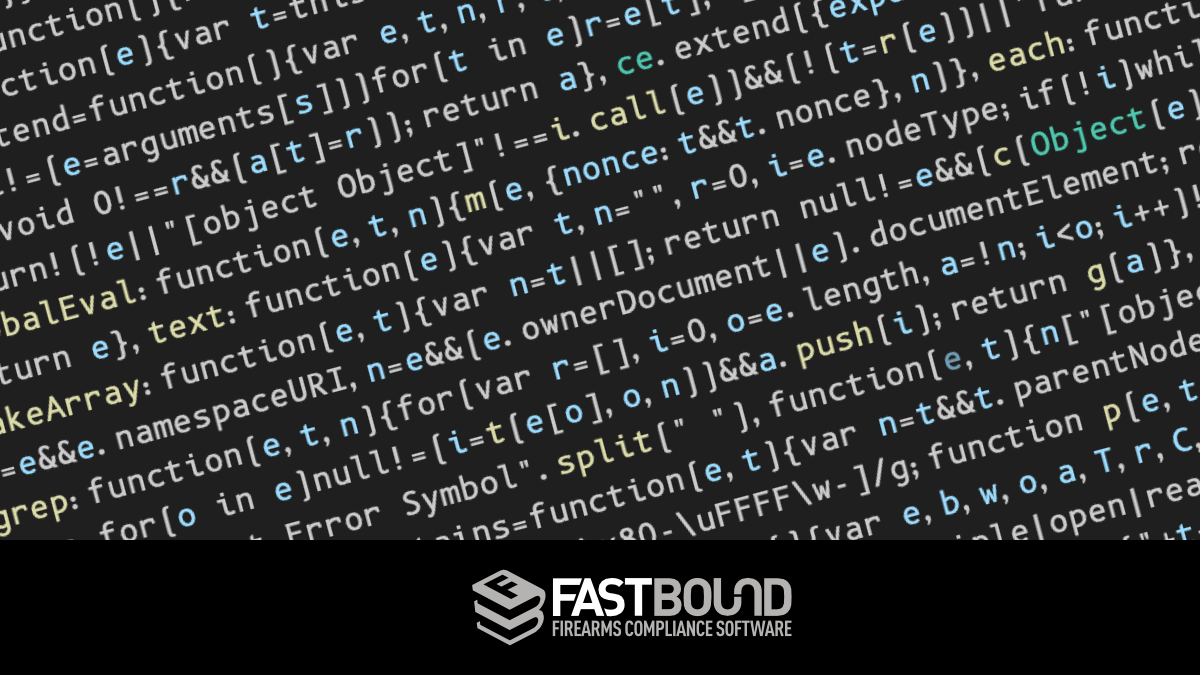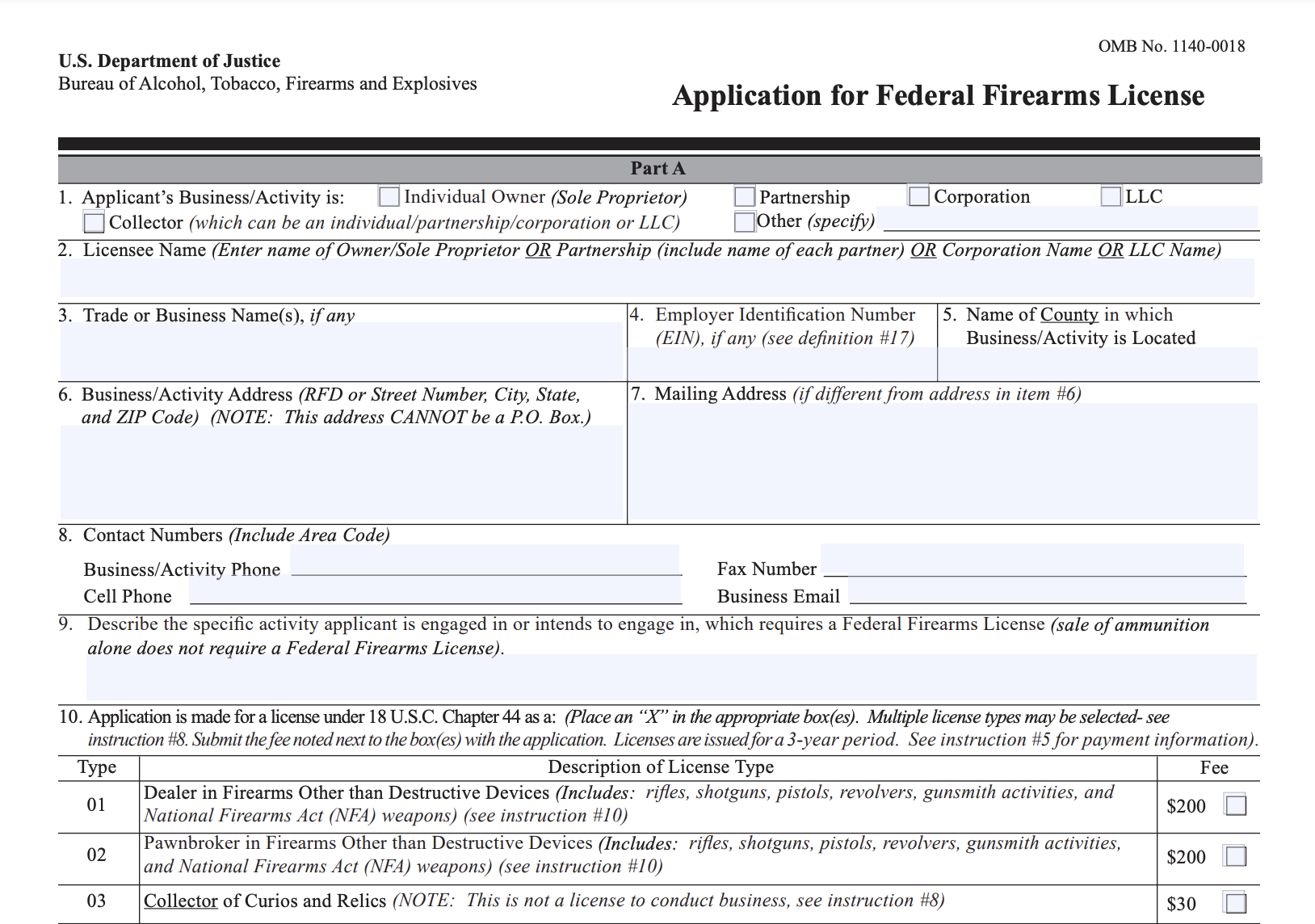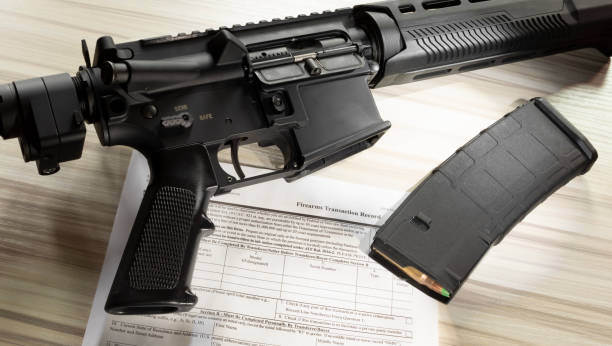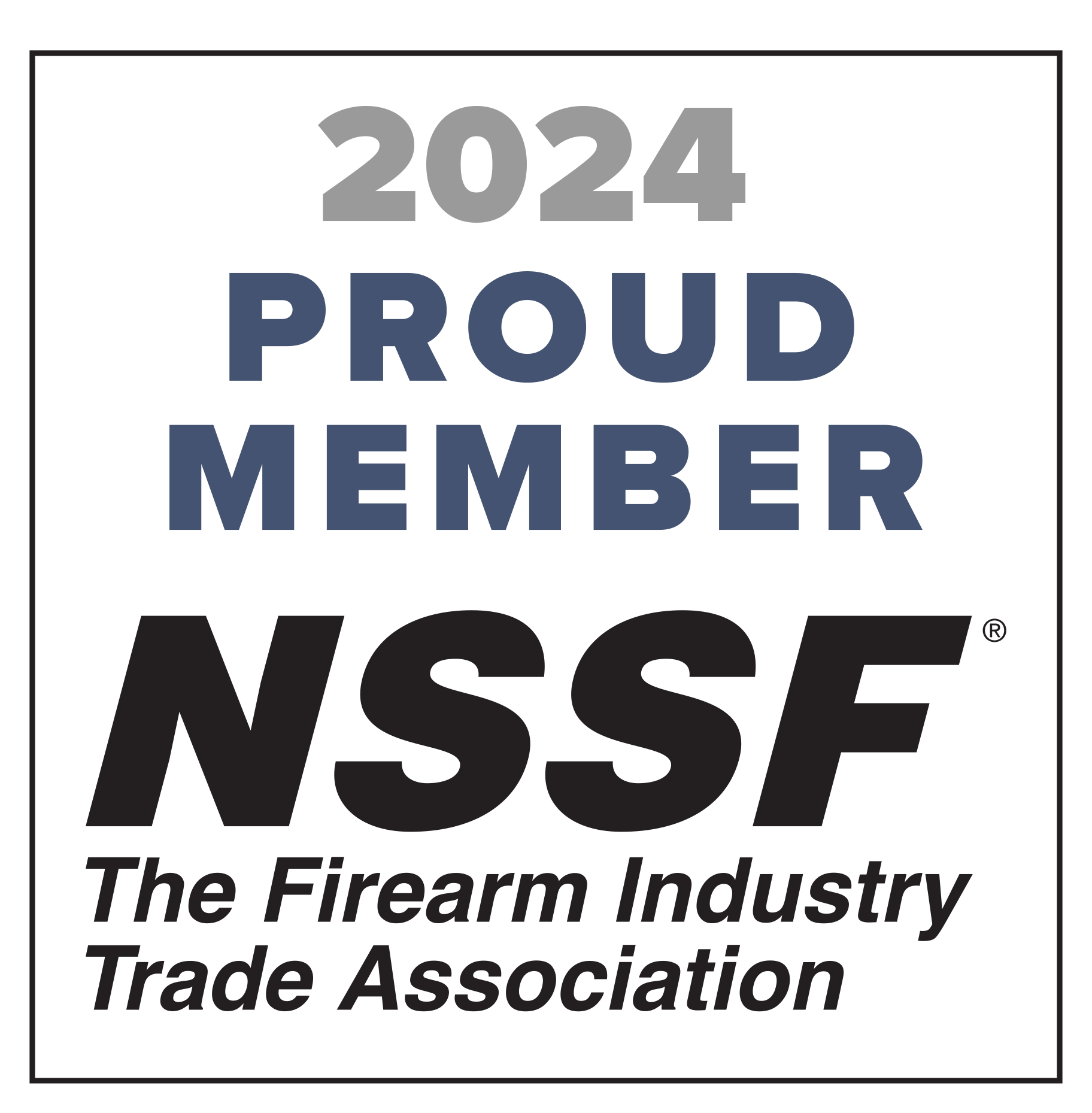Use a simplified firearms bound book record keeping process to ensure you complete your records quickly, without sacrificing thoroughness and accuracy.
As a firearms dealer, you have a hundred tasks to complete each day. Like any other retail or wholesale business, you have inventory to count and stock, employees to direct, finances to manage, customers to help, and a store to maintain.
On top of all of that, you have to comply with a bevy of complex government regulations if you want to keep your Federal Firearms License.
Keeping it all together can be tough. Even the owner, who knows the ins and outs of the business, can forget something from time to time. If you fail to sweep the floor before closing, no one cares. If you forget to run to the bank, you can make it tomorrow.
But what happens when you forget something serious? What happens when, for example, you forget to record a serial number of a firearm? Or forget to run a background check? These types of mistakes can cost your business.
Humans aren’t perfect. We forget things, misremember, and occasionally get lazy. Just because we’ve been doing something for a long time, or just because we’ve never been caught, doesn’t mean we won’t make a mistake in the future.
Smart businesses use processes to simplify their work and ensure things get done properly.Processes are the meat of your business; the glue that hold your assets (like employees, equipment, and customers) together.
Processes are the meat of your business; the glue that hold your assets together.
A well-designed process removes the human element. Yes, it’s always good to have loyal, skilled, and competent people. But processes manage the mundane so those types of people can thrive and help grow your business.
A process prevents you from missing steps.
If you reduce a task to a series of steps, they become easier to complete. For example, you could put together a “Closing Process.” This document would guide an employee through everything they need to close your store. It might list steps like “count the firearms,” “lock the cases,” “count the till,” and “turn off the lights.”
You can hold employees accountable to this document by having them initial each step. Not only will the document prompt your employees to address each step, but the act of attaching their name will inspire them to do good work.
A process makes it easier to train employees.
Occasionally you’ll have to hire an employee. Even though employees are necessary, the time, energy, and money spent training them can be burdensome. If detailed processes are developed, documented, and made accessible, new employees can use them as a resource. They’ll train faster, bother you less, and make fewer mistakes.
One of the most important places to develop and employ a process is for your record keeping. As a firearms dealer, the regulations you’re subject to can be arduous and complex. You’ll want a simple, easy-to-follow process that gets you through your record keeping tasks as quick as possible without sacrificing thoroughness.
1. Adopt an electronic record keeping system.
There’s no sense doing work if software can do it for you.
Electronic record keeping helps you complete transactions faster. Instead of tediously recording information by hand, you can use a computer or laptop to quickly type each field. This makes your life easier and improves the customer’s experience.
When you need to recall a piece of information, you won’t have to dig through filing cabinets of old bound books. With a few keystrokes, you can pull up any piece of information you need. This makes ATF inspections a breeze because everything is in one, easy-to-find location. (It will also make a friend of the investigator, which is never a bad thing.) Just make sure you’re using compliant software.
Furthermore, electronic systems boil your record keeping down to a simple, step-by-step workflow. A workflow is how you ensure that pieces of information are never forgotten.
If you were to fill out a form by hand, there’s a chance you could miss a field. Maybe you are in a rush. Maybe your hand was covering the space. Maybe the form is laid out poorly and you just didn’t see it. Electronic workflows, however, prompt you question-by-question and don’t let you proceed unless crucial information is present. (By “crucial,” I mean the things that can land in you in hot water with the ATF.)
2. Back up your records often.

I know what you’re thinking: “That doesn’t simplify my process. That adds an extra step!”
That may be true, but backing up your records will save you from a big headache when you inevitably misplace or ruin them. It will happen at some point. You’ll knock your bound book into the trash, stain it with spilled coffee, or perhaps find yourself the victim of a fire or flood.
The ATF expects you to maintain your own records. Even if you genuinely misplaced or accidentally destroyed them, investigators won’t accept excuses. You’ll be penalized as though you never prepared them.
Create a process for photocopying your records. I recommend doing this at the end of every day. Take copies home with you so they are in a separate location (in case of fire, flood, theft, etc.).
If you’re keeping records electronically, make sure you’re using a system that regularly backs up your data. At a minimum, this should happen once per week, but the best software backs up your information every day. In fact, that’s exactly how FastBound’s system works. We make data security a priority by using the best US servers with diligent protections. This is for your protection.
3. Put everything in one place.
Everything you need to prepare your records should be in a simple place. When you begin filling out paperwork to service a customer, you shouldn’t have to find different forms or make copies. Check each morning to make sure your record keeping station is stocked for the day.
This is another reason it’s best to maintain your records electronically. You’ll never have to scurry around your office or store looking for that obscure form, and you’ll never battle with an out-of-ink printer or an uncooperative photocopier. The simpler, the better.
4. Build a workflow.

If you insist on completing your records manually, you’ll need a process that ensures you fill out the right forms. A workflow is a step-by-step roadmap that takes you through your record keeping from beginning to end.
Ideally, this should be a graphical document that outlines each step of the process. Make it clear and easy to read for everyone. Post your workflow near the place you process transactions.
For example, a typical process begins with Form 4473. While the customer fills out this document, you might ask to see identification and proof that he/she is authorized to purchase a firearm in the state. Then you would begin the background check process through the NICS. Finally, you would begin entering the appropriate information in your acquisitions and disposition bound book.
You’ll have to personalize your workflow. It will likely be similar to other dealers, but there are bound to be some differences.
To meet your business goals, you might try to upsell the customer by offering them additional firearms or ammunition. If you convince the buyer to purchase an additional handgun, for instance, you would need to complete the Report of Multiple Sale or Other Disposition of Pistols and Revolvers. Include this on your workflow document.
Furthermore, each state has their own regulations. Some require additional paperwork that you’ll have to organize into your workflow.
(It’s worth noting that this is another problem that’s solved with electronic software: the workflow is built right in.)
5. Outsource whatever you can.
Depending on the size of your business, you may have the option of paying someone else to handle your record keeping. In many cases, this is simpler than spending the time doing it yourself. While you can’t allow someone else to prepare your firearms bound book, you can outsource other tedious record keeping tasks.
Payroll is a common task businesses push on to paid contractors. Managing tax withholding, sick days, vacation time, retirement accounts, and writing paychecks can drain your time; time you can better spend drumming up business and serving customers. You’ll have to determine if the time you save by eliminating these record keeping tasks is worth the expense.
Furthermore, you could outsource your accounting and human resource tasks. Each of these spheres require unique records that can be handled by separate providers. Naturally you would keep copies of any outsourced paperwork on hand, but let the service provider handle the forms and records.
Do it Right the First Time
Remember, the beauty of a process is that you only have to make it once (allowing for the occasional tweak). If you build it well, it will save you time, energy and money forever.

















